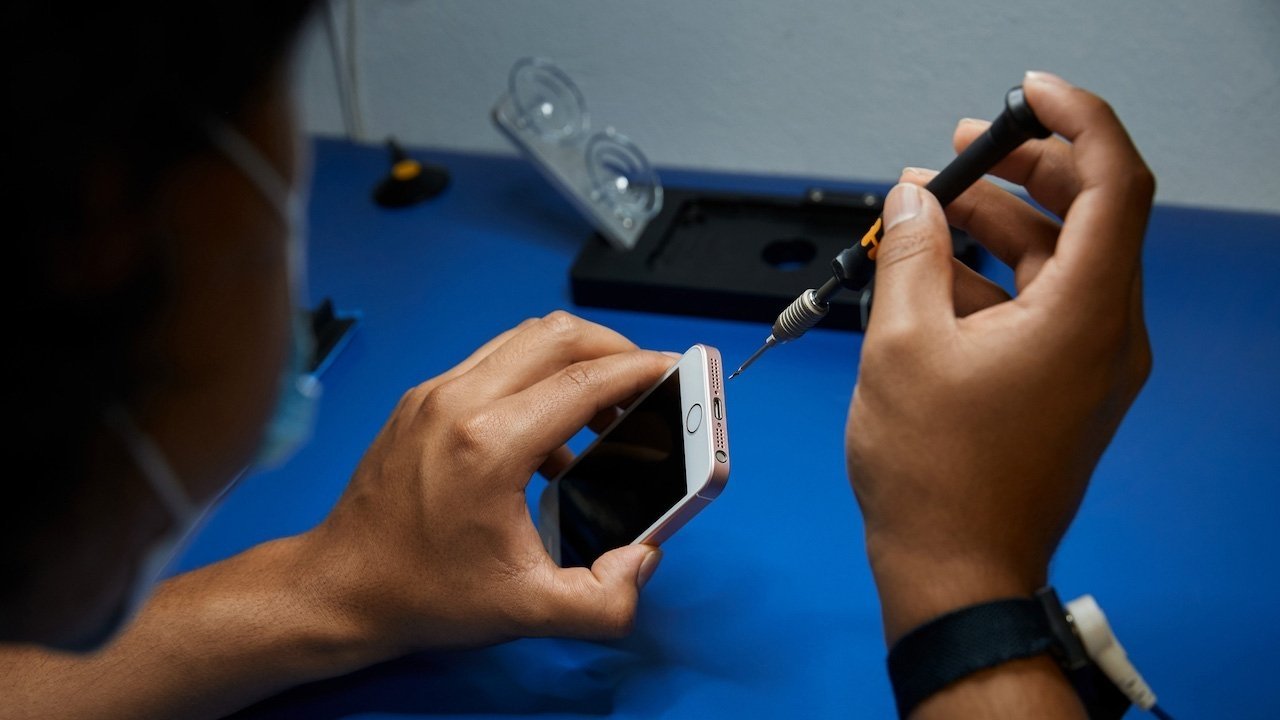A bill submitted to the US Senate for consideration seeks to change the current situation of device repairs from tech companies. Here's why you should care about it.
Introduced in the morning of March 16, 2022, the Fair Repair Act of 2022 aims to set up an environment for "right to repair." Senators Ray Lujan, Cynthia Lummis, and Ron Wyden have described the bill as "[leveling] the playing field by ensuring that manufacturers do not lock out owners and independent service providers from providing repairs by denying access to parts, tools, and documentation."
The statement adds that, if passed, the Act can "greatly reduce waste, reliance on foreign-manufactured chips, and empower small-businesses and farmers to repair their own equipment."
This is the sentiment proponents of "Right to Repair" have been echoing. In essence, advocates believe that the average consumer should be given access to tools and equipment to perform repairs on their devices.
Manufacturers such as Apple, Google, and Microsoft for the most believe that devices should be repaired exclusively through vetted technicians, however. This trio attempted to block a right-to-repair bill back in May 2021.
Organizations and companies have offered pros and cons to the right-to-repair issue.
In support of Right to Repair
CALPIRG, a Californian right-to-repair advocacy group, believes time and financial costs of fixing a broken device can be remedied by an issue like the Fair Repair Act.
"You may have encountered manufacturer-imposed restrictions on tools and repair parts, which limited your options." The organization noted that it forced consumers into a small set of service options authorized by the manufacturer, and often led to higher repair costs.
They have remarked that over half of respondents as supportive of right-to-repair which includes respondent from all sides of the political spectrum. 95% of respondents became supportive of right-to-repair after the issue was explained to them.
Electronics repair solutions firm iFixit believes that right-to-repair is more environmentally friendly by minimizing electronic waste.
"We should all be able to fix what we own, and the Fair Repair Act takes a huge step toward a more repairable future." CEO Kyle Wiens stated in response to the Fair Repair Act. "It's good for small independent repair businesses, great for the planet, and even better for people who need their smartphone screens fixed."
The statement by the firm also claims that more than 20% of people would rather repair their phone than buy a new one if repair options were more accessible.
Against Right to Repair
Allowing regular consumers instead of professional repairers employed by the manufacturer increases the risks of bodily harm, argued Apple. In a statement to the US House of Representatives, Apple argued that their goal "is to achieve a safe and reliable repair for our customers, whether that repair is done by Apple or a service provider designated by Apple."
The tech giant said it has spent "time and money to make Apple devices incredibly user friendly", all while adding that "they are still complex, very technical machines."
Right-to-repair could not appropriately satisfy performance and safety standards set by Apple, the tech company argued. In the same statement made to Congressmen, Apple asserts that "repairs performed by untrained technicians might not follow proper safety and repair procedures and could result in improper function, product quality issues or safety events."
Apple is now offering genuine parts of its own for certain iPhone and Mac devices.
Google has a similar stance. Since the 2021 efforts blocking introduced bills, Microsoft has promised a supply of parts and repair documents as well, but like Apple's program, it is nascent and not fully launched — but Microsoft's program is further along than Apple's.
 Darryl Boxberger
Darryl Boxberger




-m.jpg)


-m.jpg)






 Andrew Orr
Andrew Orr
 Malcolm Owen
Malcolm Owen
 Marko Zivkovic
Marko Zivkovic

 Andrew O'Hara
Andrew O'Hara
 William Gallagher
William Gallagher









9 Comments
"Senators Ray Lujan, Cynthia Lummis, and Ron Wyden have described the bill as "[leveling] the playing field by ensuring that manufacturers do not lock out owners and independent service providers from providing repairs by denying access to parts, tools, and documentation."
I'm far more interested in knowing whether this would force McDonald's to allow independent service providers to fix their infamous ice cream machines. :D
I get Cook's argument, but honestly, if people want to do it, let them. But, Apple should be free from any liability should something go wrong.
Right to repair is NOT environmentally friendly at all. It's actually consuming more resources as it would allow third parties to produce a lot of waste and bypass Apple's recycling programs where they take in bad parts and recycle them. Third parties are notorious for poor recycling habits.
Apple's program is extremely efficient and streamlined - they all go the most cost effective path - thousands of users send their devices and they go into one place and transported to one place to do repairs and they are returned back to the same original sources. With individuals doing the repairs, they are consuming more resources since each repair would require more paths to get parts.
After working in the PC recycling industry, I've learned that it's always a bad idea to demand right to repair and also component upgrades are always bad for environment.
It is simply much better if you just trade your device in for a new device. Companies like Apple have excellent recycling programs that they use to recycle old devices.
I get the concept of “right to repair,” I really do. It’s just that there is a line and limit for me on that concept, and it begins and ends with access to personal and biometric data. There is a LOT of harm that could be generated by unscrupulous “repair” outlets once they are free from the threat of Apple decertification (this also applies of course to Android phones, eh Samsung?).
it is LUDICROUSLY cheap and easy to become an Apple certified tech if you have any sort of talent in that area. On top of the other concerns I’ve raised, the salary for real Apple techs will plummet if any Joe Schmoe can hang up a shingle and claim they can do the repairs.
And when those unauthorized repairs go sideways, guess who will be named as a co-defendant in the lawsuit? Go on, have a guess!